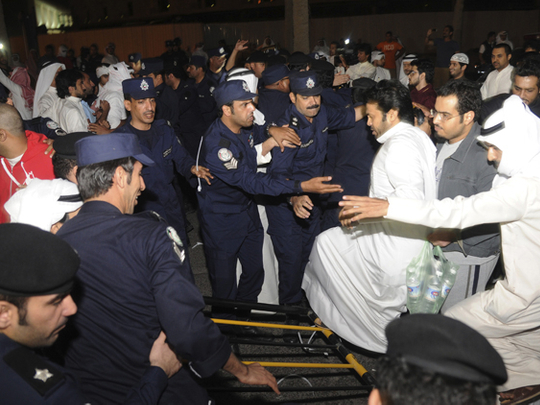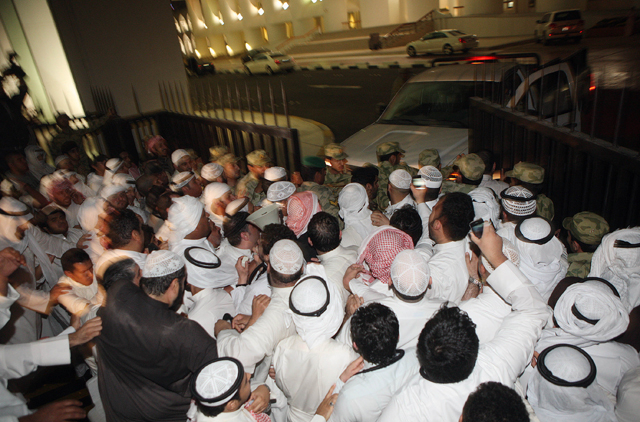
Manama: Kuwait’s government is likely to hold an emergency meeting on Thursday morning to discuss the latest dramatic developments in the country.
Kuwaiti media said that the session would be chaired by the Emir Shaikh Sabah Al Ahmad Al Sabah and that significant decisions could be announced.
The move to hold the emergency session was decided after hundreds of protesters muscled their way into the parliament on Wednesday evening to press for the resignation or removal of the government.
Rally
According to witnesses, a rally organised by the opposition MPs on Wednesday evening calling for the resignation of Prime Minister Shaikh Nasser Al Mohammad Al Sabah degenerated after protesters decided to organise a second rally in front of the premier’s residence.
However, the young people, led by MPs, were prevented by the police and in the ensuing clashes, protesters hurled bottles of water at the servicemen who responded by beating them with batons. Kuwaiti media said that the clashes resulted in several injuries.
The rally then moved to the parliament and the protesters muscled their way into the main hall where some lawmakers delivered speeches in which they reportedly said that the time for words was over and that action was the way forward.
Vociferous opponent
MP Muslim Al Barrack, a vociferous opponent of the prime minister, called for a series of popular rallies and sit-ins to remove him while MP Waleed Al Tabtabai mourned the “assassination of the Kuwaiti constitution” in reference to the decision by the parliament on Tuesday not to move ahead with the grilling of Shaikh Nasser.
The premier has been in charge since 2006 and has faced several attempts by the opposition to have him removed. He resigned six times, but was each time reappointed to lead the government.
Financial scandal
Kuwait has been lately rocked by a financial scandal amid reports that 15 of the 50 members of parliament allegedly received huge amounts of political money to influence their votes and decisions.
Although the unprecedented case is being investigated after local banks referred lawmakers’ accounts on suspicions of receiving unusually huge deposits, several opposition lawmakers have seized on the occasion to press for a new government.












